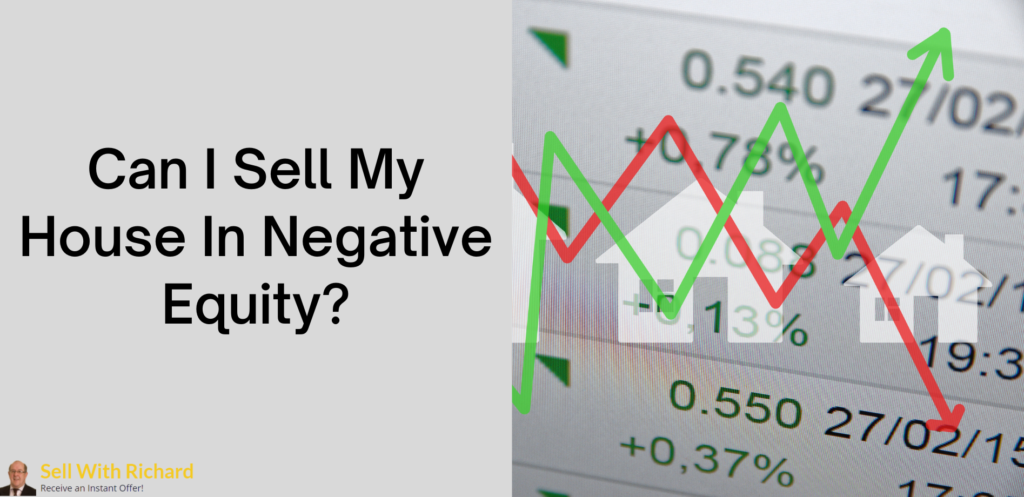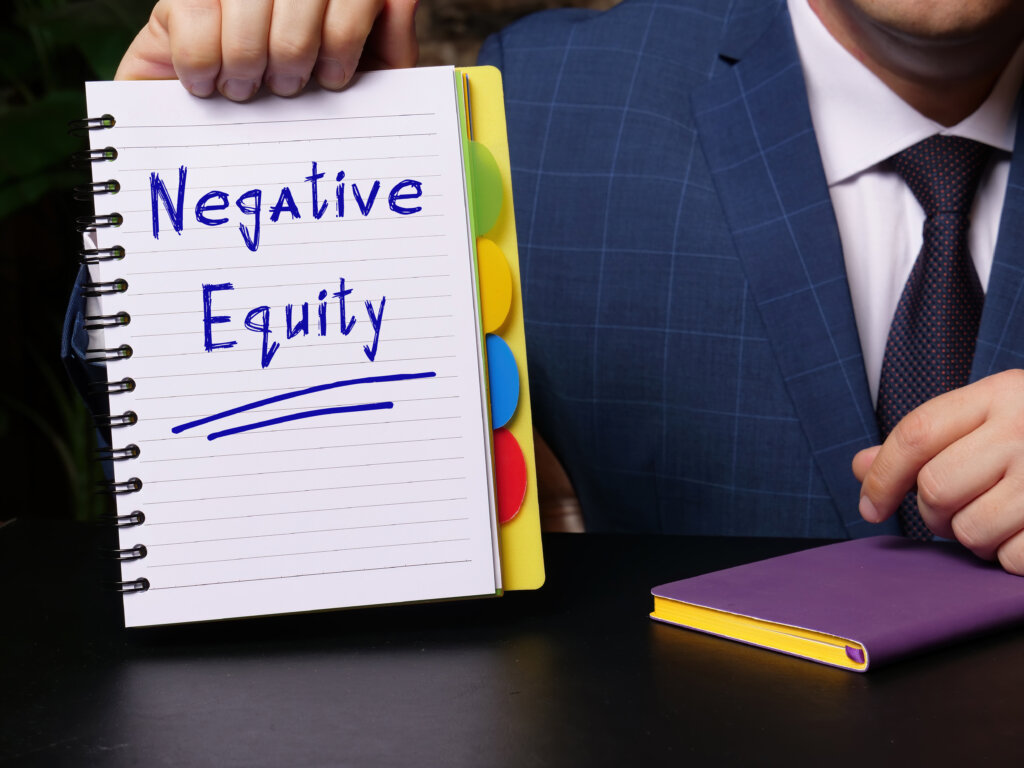
Are you a landlord or homeowner with a property that has limited or no equity?
Along with more than 2 million households, you are probably feeling uncertain and imprisoned by your mortgage.
What was once a dream of owning your own home or having a portfolio of properties with zero debt, seems a distant past.
What Is Negative Equity and How Do I Know if I Am in this Predicament?
Negative equity is simply when the value of your house is worth less than the actual amount you owe on your mortgage. So, if the sale of your house is £200,000, but your mortgage is worth £250,000, you are currently in negative equity by £50,000.
You can find out if you’re in negative by calling your mortgage lender and asking for the outstanding balance. Once you have this information, you can determine the value of your house by visiting Zoopla or Rightmove. They both have tools that provide an estimate.
Remember, you cannot sell the property at a lower price than what you owe unless you have something in place to pay the money back that is outstanding.
Being in negative equity is only a problem if you need to sell your house now…and this article will help you with this.
How to Deal with Negative Equity
There are options available for you to deal with negative equity and hopefully end your nightmare.
1. Do Nothing and Wait it Out
If you don’t have or want to sell due to circumstances, then put the fire on, sit down with a hot chocolate and ride out the storm. Over time, house prices increase so be it 1, 5 or 20 years your house price should recover from exceeding your mortgage value.
Just make sure that you can keep up with the monthly payments….and also have sufficient income to cover any interest rate rises that will bump up your monthly payments
2. Reduce Your Debt Through Savings
If you are in the fortunate position of having some savings tucked away, then use it.
However, just be mindful that your lender may not allow you to overpay and you could be subject to additional fees for doing so.
3. Increase the Value of Your Home
If your bank puts the breaks on you overpaying on your mortgage through additional savings, then you may wish to use the option of using the savings to increase the market price of your home.
Look at neighbouring properties and determine if you can do anything that makes you home stick out and appear more valuable. This may include an extension, adding a conservatory or undertaking a loft conversion.
Just make sure whatever you spend your hard-earned savings on will contribute to increasing the value of the property by more than the amount you have spent.
4. Sell and Repay the Shortfall Over Time
You could bite the bullet and just sell your home. This should be considered only if you’re facing extreme financial circumstances where you cannot keep up with payments or when the term on your mortgage is imminent.
Your lender may agree to forgive the deficit if the proceeds of the sale would be greater than if they repossessed the property and sold it at auction.
5. Allow Your Home to be Repossessed
As above, this should only be used in the worst-case scenarios. As your credit rating will be affected and your mortgage company can still pursue you for up to 6 years after your repossession.
6. Declare Bankruptcy
Again, this option is only recommended if you have tried every other option, and there is nowhere to turn. If you do pursue this channel, please seek professional legal advice.
7. Rent It Out
If you cannot sit it out and you have to move quickly, then why not think about renting your property out. If you are a landlord but want to move on as you are fed up with the headaches that tenants can bring, then this may not be an option that you want to entertain.
The Problem with Negative Equity
If you want to sell your home immediately, then you will find that negative equity is a real problem. Unless you have savings available to repay the difference between the home’s value and the mortgage, then you will find it is quite difficult to make the move.
Many lenders won’t allow someone with negative equity switch to a new mortgage deal either until the existing mortgage deal ends which can also pose a problem if you are thinking about refinancing your mortgage.

Speak to Richard if you are interested in selling your house fast?
Moving with Negative Equity
You need to determine just how much negative equity you have and then figure out the value of the property you are looking to move into. You also should be up to date with your existing mortgage and then determine how much money you have to deposit for a new property.
A small number of lenders work with negative equity mortgage situations. Keep in mind; you will be expected to pay a deposit.
The Pros and Cons of a Negative Equity Mortgage
There are a few pros and cons when it comes to a negative equity mortgage if that is the route you decide to take.
Pros
- This mortgage allows you the chance to move without having to pay off the negative equity. This is good if you have to move right away and simply can’t wait.
Cons
- Early repayment charges may need to be paid
- You may experience additional fees and charges
- Mortgage may have a much higher interest rate
- Few lenders offer this mortgage type
As you can see, there are more cons than pros in this situation. So, it may be in your best interests to instead try to reduce the negative equity on the home by overpaying on your mortgage.
See if your current lender will allow you to make these overpayments and see how much you can pay without incurring any early repayment charges.
You then need to determine how much you can afford to pay extra each month and see what the difference in your payments can do for your negative equity.
Do You Want to Sell Your Negative Equity Property NOW?
As well as the above options you can consider selling your mortgage to specialists buyers.
Here at Sell With Richard, we have helped numerous landlords and homeowners move on from their negative equity dilemma.
In fact, Richard has also been through negative equity. So he knows exactly what you are going through and even more so has a solution he can personally vouch for.
Negative Home Equity FAQ
Negative home equity can be frustrating for homeowners, which is why you should educate yourself on the topic to find solutions to the problem.
Does negative equity affect your interest rate?
When interest rates rise, and you are in negative equity, you could find yourself more vulnerable to a home repossession. So, you want to make sure you can still make your mortgage payments even when interest rates rise.
What other factors increase the risk of negative equity?
If you take out a mortgage with a high loan to value ratio, then you are at more risk of going into negative equity. Second mortgages can also move the ratio of the loan closer to the value.
How do you get out of negative equity?

About Richard Mews
Richard has 31+ years of property experience, has been Chairman of several regeneration committees and has helped more than 600 homeowners and landlords get easy, stress-free personal solutions for selling their property. Richard’s goal is to give you unbiased help to receive a quick house sale, even if that means not working with him.
Let’s connect:
Speak to Richard if you are interested in selling your house fast?



